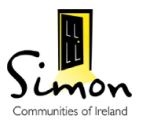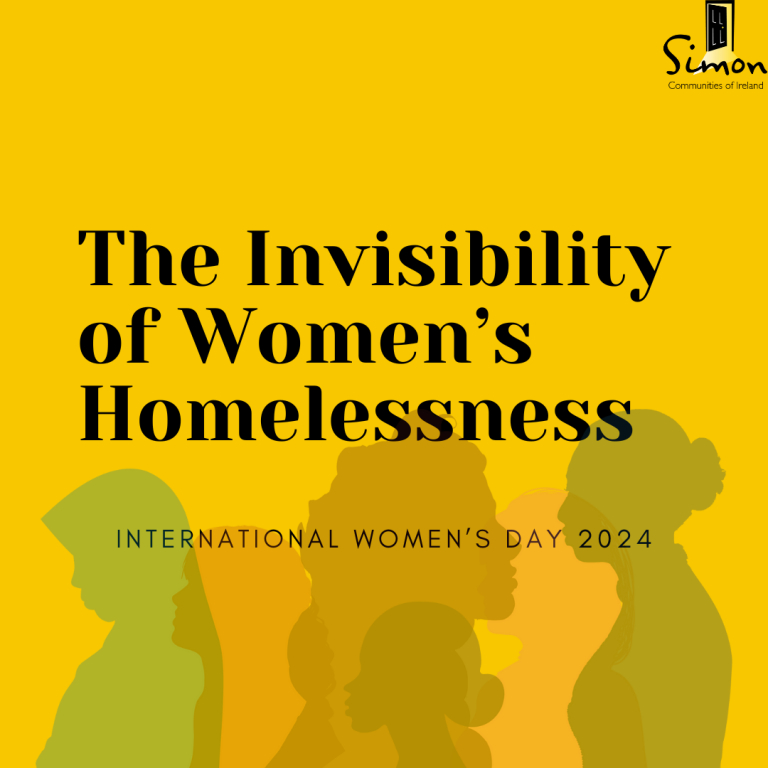At the annual conference to begin Simon Week research commissioned from Mr Joe Finnerty of University College Cork sets out how the early phase of the COVID-19 crisis saw a mobilisation of support and expertise working effectively to keep people experiencing homelessness safe. This mobilisation demonstrates that the homelessness can be tackled more effectively through a client-centre approach that focuses on early intervention, prevention measures and housing led solutions such as Housing First. (28.09.20).
The Simon Communities of Ireland commissioned independent research into the experiences of frontline service providers during the early phase of Covid-19 , to examine the outcomes and lessons from the early pandemic period.
Mr. Joe Finnerty of UCC presents his provisional research findings, followed by a panel discussion on the importance of the implementation of structural prevention measures to end homelessness.
Mr Joe Finnerty from the School of Applied Social Studies, University College Cork stated “Interim findings from the study show that the Simon Communities, local authorities and the H.S.E acted quickly to ensure Simon services could still run and that their homeless clients were kept safe from Covid-19.
Initial findings see that, despite the numerous challenges faced by clients and staff, the crisis led to greater collaboration across agencies and a more tailored client-centred approach. Notable in this regard were the speedy implementation of social distancing measures in hostels – in particular, the provision of own-room accommodation, the rapid provision of self-isolation accommodation options, and the removal of many barriers in accessing drug substitution programs”.
However, the research highlights concerns raised that the isolation suffered by some because of the pandemic did have negative impacts.
In advance of launching the event Minister for Housing, Planning and Heritage Daragh O’Brien TD said: “I am very conscious of the ongoing impact of COVID-19 on our homeless services and I am very grateful to the local authorities and their NGO service delivery partners, including the Simon Communities of Ireland, for their continued efforts to ensure the safety of households in emergency accommodation. I also acknowledge and appreciate the support being received from the Department of Health and the HSE. This pandemic has further demonstrated the absolute necessity for collaboration between the Department of Health, the HSE and my Department.
Commenting, Simon Community in Ireland’s Head of Policy and Communications, Wayne Stanley said: “This research catalogues the positive and proactive work on the ground around the country during the height of the COVID period. Work that kept people safe from the contracting the virus and ensured that as many households as possible were able to move-on from homelessness into a home of their own.
These were important collaborations which we need to build upon for the benefit of anyone who may experience homelessness.
While we were able to maintain exits from homelessness, the fall in the number of people accessing emergency accommodation from February to July 2020 (15%) was achieved in large part because of the reduction of the number of people being pushed into homelessness. We now need a two-pronged strategy: 1. We need to build on the learnings to improve services and enhance homeless prevention. 2. We need to build the housing and services infrastructure required to ‘Stop Homelessness before it starts’. This will put us firmly on the road to ending the risk of homelessness for the vast majority of people in Ireland.
During tomorrow’s (28.09.20) Simon Week conference, expert speakers will draw from experiences in the UK and Finland to discuss the importance of policy and structural change to stop homelessness before it starts.
For media queries and interview requests
Kate O’Reilly
Tel: 087 2890955
E: communications@simoncommunity.com
About Simon Communities
The Simon Communities support over 16,700 men, women, and children. We have 50 years of experience providing homeless, housing and treatment services to people facing the trauma and stress of homelessness. We are a network of independent Communities based in Cork, Dublin, Dundalk, Galway, the Midlands, the Mid West, the North West and the South East, responding to local needs and supported by a National Office in the areas of policy, research, communications and best practice. We share common values and ethos in tackling homelessness and, informed by our grassroots services, we campaign for more effective policies and legislation regionally, nationally and at European level. Whatever the issue, Simon’s door is always open for as long as we are needed. For more information, please visit www.simon.ie.
Services include:
- Homelessness prevention, tenancy sustainment and resettlement.
- Street outreach, emergency accommodation and harm reduction.
- Housing with support and Housing First services.
- Homeless specific health and wellbeing services (counselling; addiction treatment and recovery; and mental health supports).
- Personal development, education, training, and employment services.
- Food banks, drop-in centres and soup runs.


